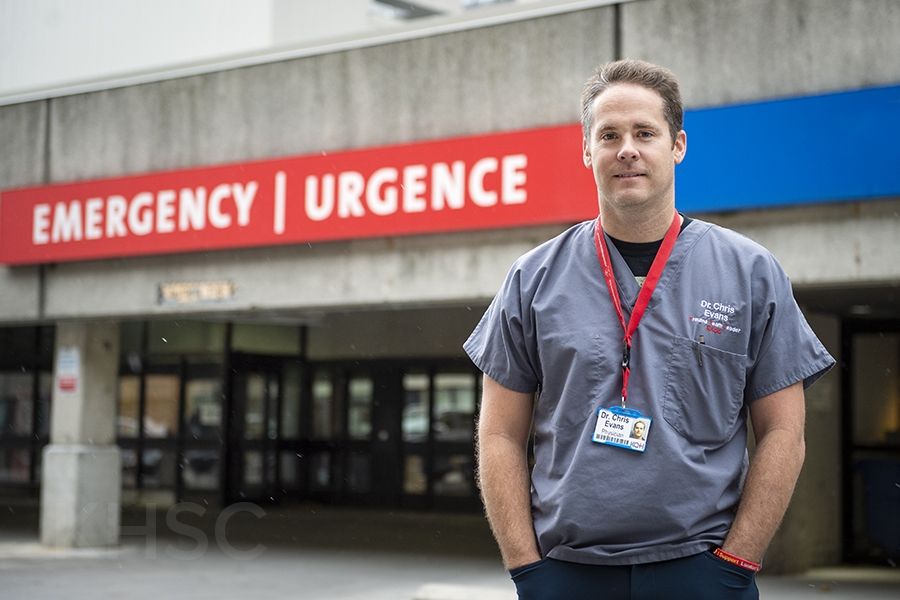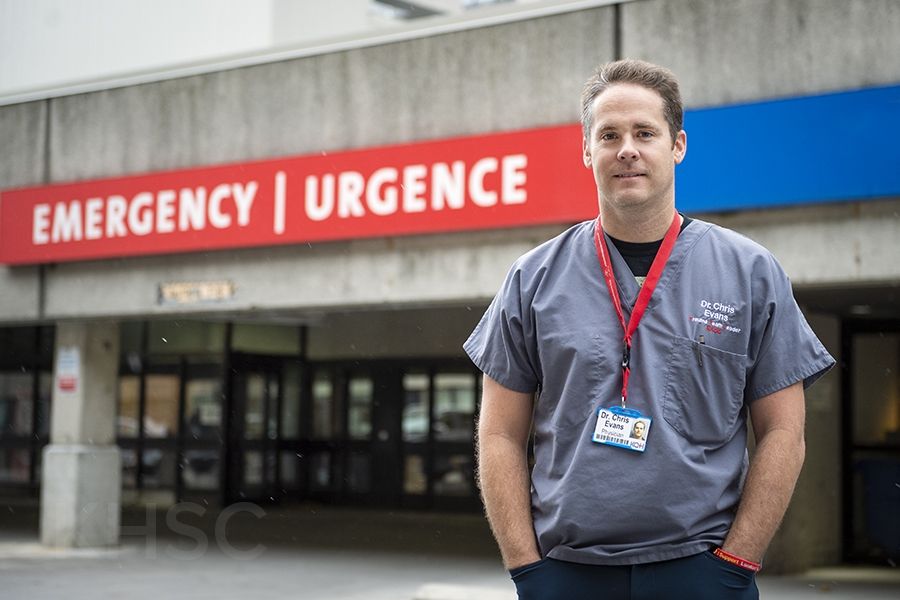Effective immediately masking is required for everyone when present on all inpatient units, in the Emergency Department (ED), the Urgent Care Centre (UCC), and the Children’s Outpatient Centre (COPC).

Dr. Chris Evans is no stranger to traumatic injuries. In fact, as the head of Kingston Health Sciences Centre’s (KHSC) trauma service, he sees the impact they can have on patients and families every day. But a new study is shining the light on the long-lasting effects of trauma that remain well after the broken bones and scar tissue have healed.
A new study, led by Dr. Evans and recently published in the Canadian Medical Association Journal (CMAJ) has shown that people who experience major injuries, such as those caused by a car accident, have a much higher risk of being admitted to hospital for mental health disorders. Results showed that this group is at a higher risk of suicide as well.
“We initiated this study because the clinicians on our team could all recall specific times where a patient was resuscitated, underwent surgery, stabilized in the ICU, and started rehabilitation, but then was determined to be suffering from a significant and underappreciated mental health disorder that proved to be a major barrier to their recovery,” says Dr. Evans, who is also an Assistant Professor of Emergency Medicine at Queen’s University.
The authors of the study then decided to look at this issue on a larger scale, using data on over 19,000 Ontarians from the Institute of Clinical Evaluative Sciences at Queen’s. They found that major trauma was associated with a 40 per cent increased rate of hospital admission for mental health conditions; the most common of which were major depression, alcohol abuse, and other drug abuse disorders.
“When patients arrive at a regional trauma hospital like KHSC, having suffered a traumatic injury, we do an excellent job of saving lives and minimizing physical disability. However, we’re seeing that once these same patients are discharged from hospital, they have difficulties with mental health conditions that complicate their recovery. The next step is to develop a more inclusive trauma system that is resourced to provide the mental health supports patients need to get them back to their baseline level of function,” he says.
The study also found that children and youth under 18 years of age had the largest increase in admissions for one or more mental health issues after injury. Suicide is also higher in people with major physical injury, with 70 suicides per 100,000 patients per year.
“The data showed that patients who suffer major injuries have high suicide rates in the years after they suffered their injury,” says Dr. Evans. “It’s clear that we need to pay special attention to these high-risk patients, especially younger adults and children.”
To read the study, visit the CMAJ website at http://www.cmaj.ca/content/190/45/E1319
Gallery


A new study led by Dr. Chris Evans has shown that people who experience major injuries have a much higher risk of being admitted to hospital for mental health disorders.



